My kitten eats my other cat's kibble, is it bad? I made a mistake, I bought adult cat kibble for my kitten , is it dangerous for him? My kitten prefers adult cat kibble, can I continue to give it to him? Many of you are asking yourselves these questions. And as experts in the well-being and health of all our cats, we couldn't leave you with your head in the bowl.
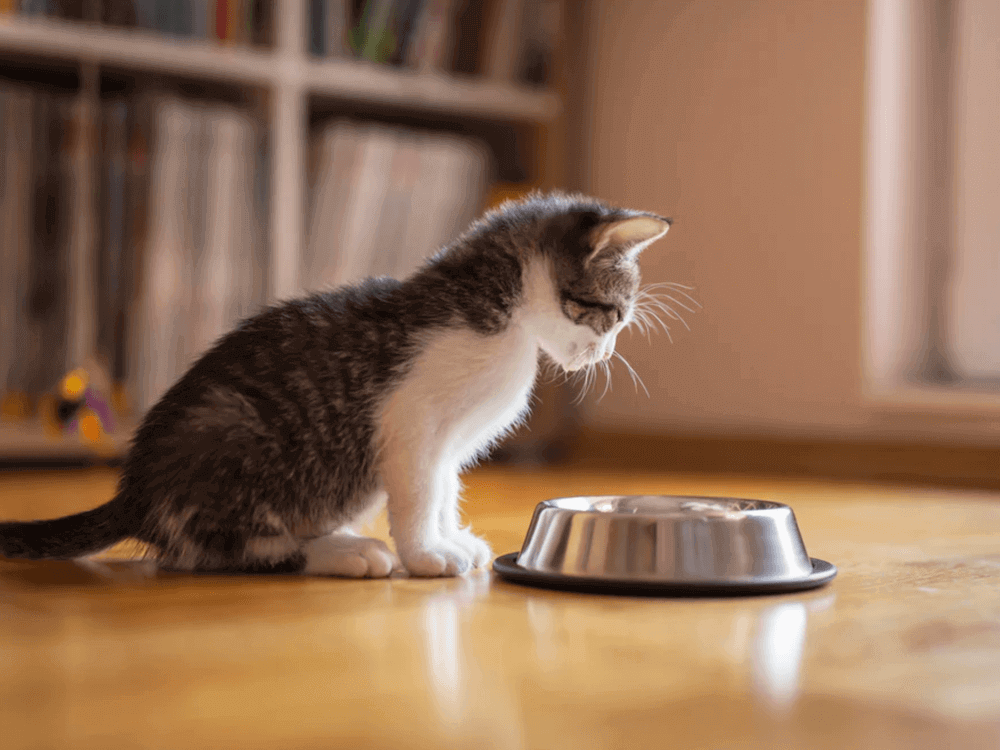
Giving adult cat food to a kitten: watch out for deficiencies!
A kitten is not a mini version of a cat. It is a growing baby that, like infants, needs kitten food to grow and be healthy.
If there are kibbles specially designed for kittens, it's not for nothing. And it's not a marketing argument at all!
Beyond the fact that the kibbles are smaller - and therefore easier to taste and ingest - they provide all the essential nutrients, and above all in necessary quantities that are not found in kibbles for an adult cat (sterilized or not).
So yes, giving adult cat food to a kitten is not a big deal. But this food can only be temporary. In the long term, your kitten may indeed have deficiencies!
A deficient kitten may develop stunted growth and many significant health problems , such as poor immune response to illness, neurological and digestive disorders, etc.
In this article, we will explain in detail what our kittens need, and why kibble (and pâté) for adult cats is really not suitable for your kitten!
Cat and kitten: the same essential nutrients…
The cat is a strict carnivore. It cannot live and stay healthy without animal proteins in its diet. A vegan cat is not a cat, it is a rabbit! These animal proteins are the source of the 11 amino acids essential to its health . If you skipped science class: proteins, once digested in the digestive tract, release amino acids which then pass into the blood. Depending on the needs of the organs, new proteins or new amino acids are produced.
In these 11 amino acids, we find: taurine, arginine, phenylalanine, methionine, valine, leucine, isoleucine, lysine, tryptophan, threonine and histidine. These amino acids are micronutrients that participate in the proper functioning of their organism (immunity, growth, digestion, reproduction) and their structure (bones, skin, muscles, hair).
Cats and kittens also both need to find lipids (essential fatty acids), minerals, vitamins and fibers in their diet, which are essential for good digestion.
Otherwise, our furry friends would end up deficient and develop serious health problems: central retinal degeneration, neurological disorders, impaired immune function, weight loss, poor quality fur ( greasy hair for example). In short, everything we don't want for our beloved felines.
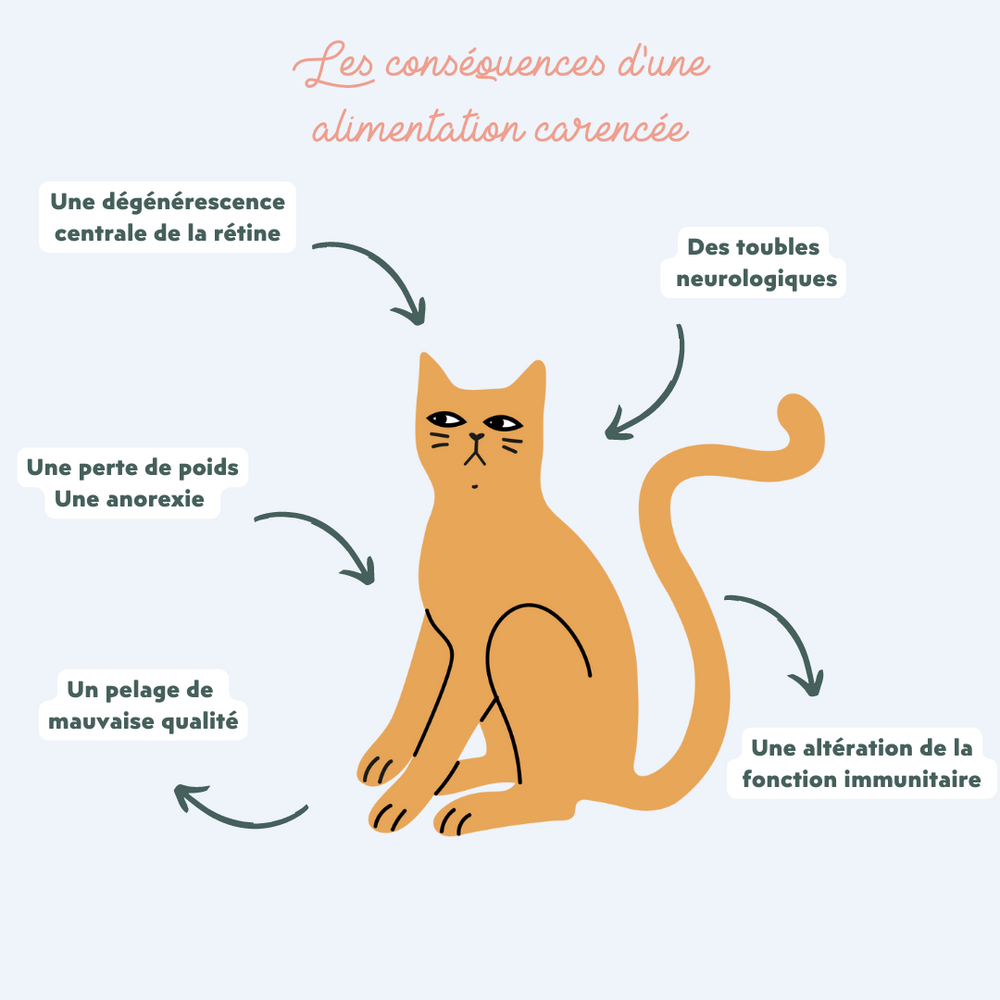
Whether they are kittens or older, cats need all of these nutrients in their diet to be healthy (and to continue scratching our beautiful sofa).
But different nutritional needs!
However, you should know that kittens (sterilized or not) have much higher nutritional needs than their big brothers. Remember that baby cats are still growing!
Small cats, from birth to 12 months (and up to 2 or 3 years for some large cat breeds like Maine Coons), will need more nutrients and calories in their diet. Which is not provided by adult cat food!
Fats are all the more essential for kittens because they help increase the digestibility of certain very important vitamins, namely the "fat-soluble" vitamins (A, D, E and K).
In this good fat, we also find Omega 6 and 3, essential for skin health and the development of the nervous system. These Omegas are in meats or parts of fatty meats such as beef, fish, oily fish oils and vegetable oils such as rapeseed oil.
Sufficient phosphorus and calcium
Kittens also need higher amounts of minerals, especially calcium and phosphorus. In a kitten food, the phosphocalcic ratio (Calcium/Phoshore) must be strictly greater than 1.
A kitten deficient in phosphorus risks having bowed legs (poor skeletal growth), a very low level of endurance, and poor quality of its coat.
A calcium deficiency can lead to bone demineralization, causing frequent fractures and hypocalcemia (compulsive licking of the extremities, digestive disorders, epilepsy).
An adult cat food contains less calcium and phosphorus, minerals that are no longer needed for growth. A large amount in their diet could even be harmful to them.
Low in fiber and starch for their fragile digestion
Finally, kittens cannot digest a large amount of fiber or starch (starch being a form of carbohydrate found in cereals, tubers and legumes). In adult kibble, the fiber or starch intake is higher.
So for all these reasons it is not recommended to give adult cat food to your kitten. The danger is not immediate, but in the long term, your little cat risks having health problems.
Of course, don't hesitate to ask your veterinarian for advice.
My kitten has just been sterilized, can I give him adult cat food?
Even if your kitten is sterilized, it will need a special diet. At Ziggy, we advise you to continue giving your little ball of fur special kitten food until it is 12 months old. When it has blown out its first candle, you can switch to food for sterilized adult cats.
If he is still not sterilized, you can continue with the pâté or kitten kibble for a while or gradually switch to food for an entire adult cat.
To learn more, please read our article on feeding sterilized kittens .
How to wean your kitten off adult cat food?
Is your kitten picking at your other cat's bowl? Prefers adult kibble? It's not surprising. Our little cats learn through mimicry. They tend to imitate their mother's eating behavior. But rest assured, our kittens' acquired food preferences are not set in stone.
It is entirely possible to wean them off the habit, and this can be done progressively by gradually integrating their new food into their usual diet. This dietary transition must be done gently; an abrupt change of food could cause diarrhea or vomiting. They could also develop a definitive rejection of this new food if ingestion is associated with a negative experience (physical or emotional).
How exactly do you do it? We explain all the steps in our article on the dietary transition in cats.
What if my kitten still refuses his kibble?
Play with your kitten before feeding him. This will bring out his hunting instinct, and the game will whet his appetite and release endorphins, the feel-good hormones.
You can also try incorporating a food he enjoys into his food, such as a small amount of tuna juice, or adding a tablespoon of water to make a small juice.
And to prevent him from going to nip at your other cat's bowl, try placing his bowl somewhere else in the house or separating meal times: one time for your kitten, another for your adult cat.
Kibble AND pâté for your kitten!
To keep your kitten healthy, we recommend that you ration out its kibble. You can of course give it kibble, but this portion of “dry” food should remain a minority in its diet.
Why? Because it contains very little water. It does not sufficiently cover the water needs of our baby cats. So supplement the kibble with pâté, which is much richer in water. AND ESPECIALLY with pâté specially designed for kittens , which will meet all their nutritional needs.
Croquettes + pâté = the perfect food for your kitten ❤️
At Ziggy, we love our cats like full members of the family, and we feed them accordingly, with what is best for their health.
We offer kibble and pâté specially designed for kittens. Our recipes have been formulated by Veterinarian Dr. Géraldine Blanchard, an expert in feline nutrition.
How to feed your kitten properly
Food, care, behavior, well-being… Find all our advice for taking care of your kitten in our guide.
And also some name ideas if you haven't found your little cat's first name yet. 🐱


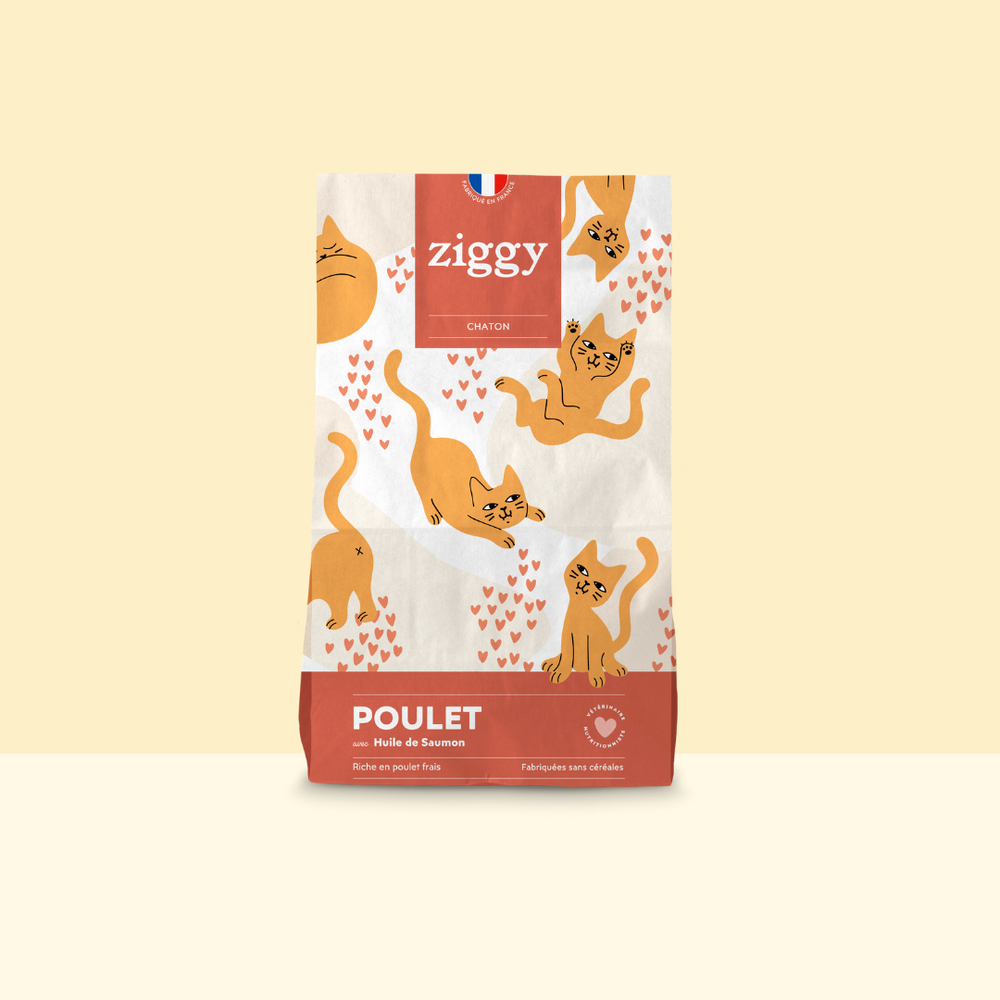
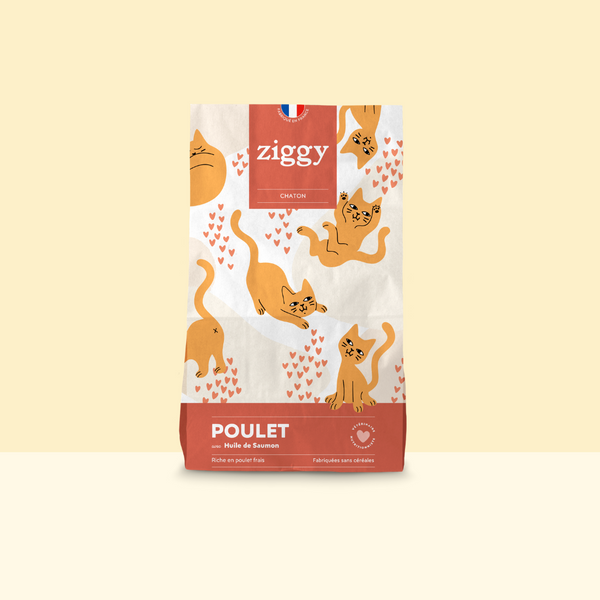






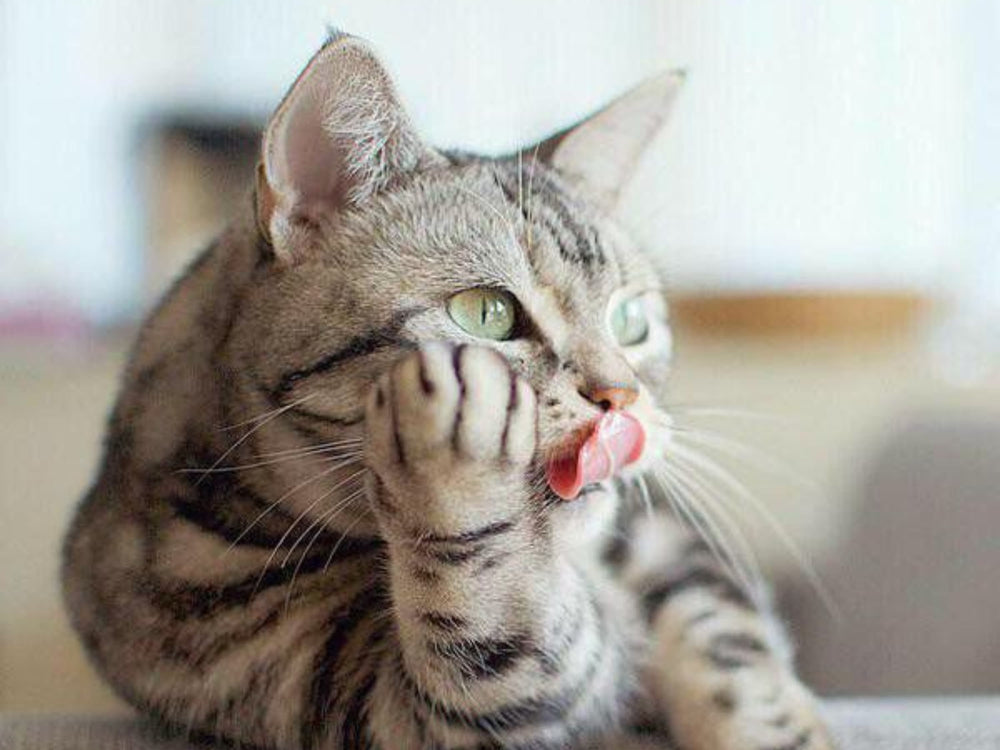
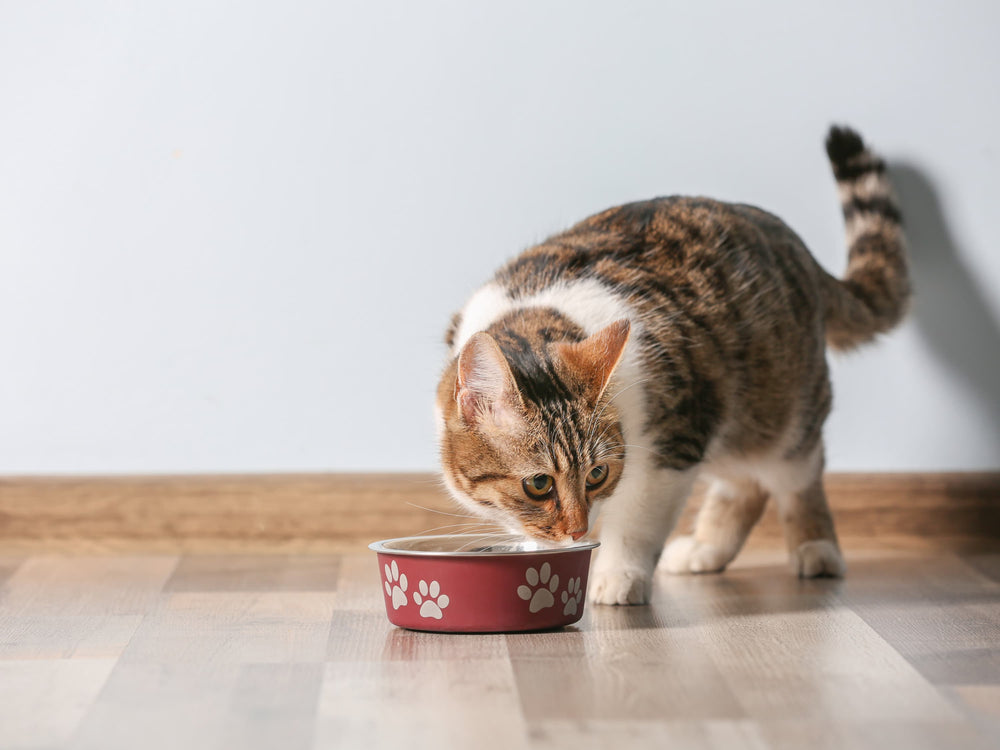
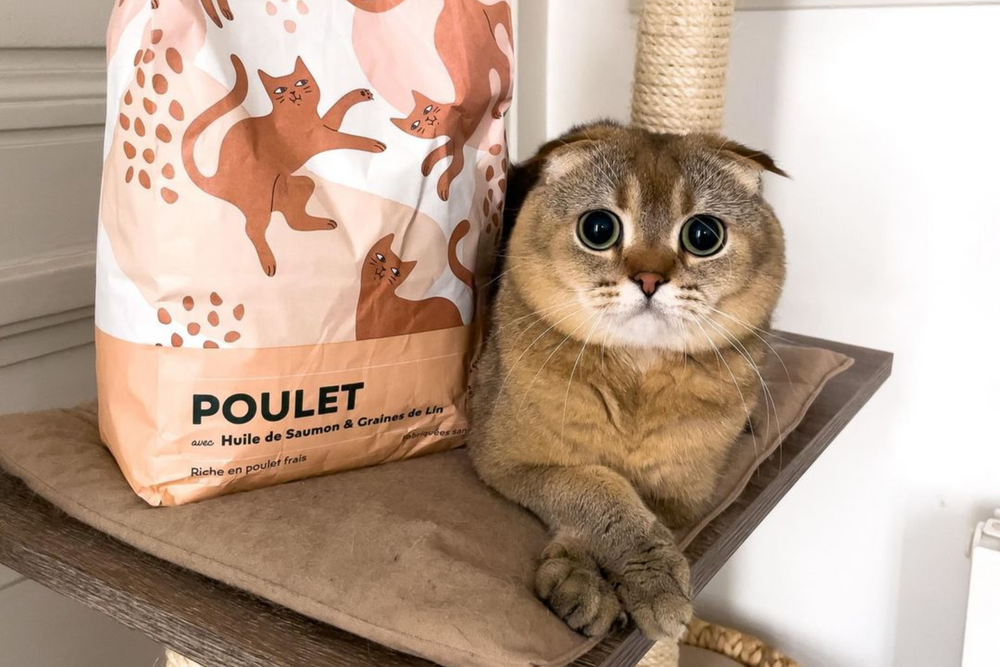
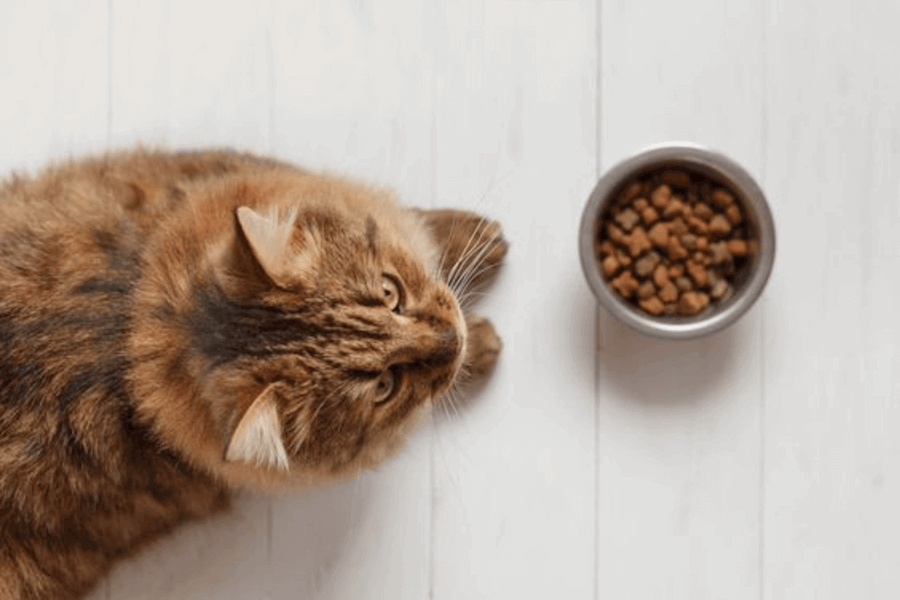
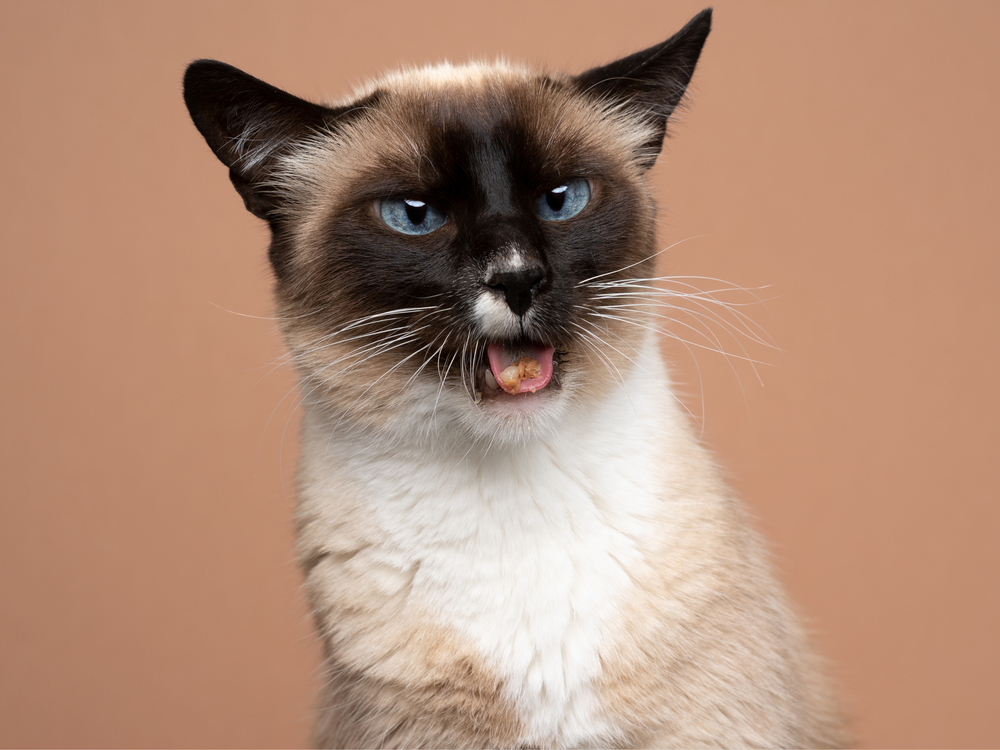
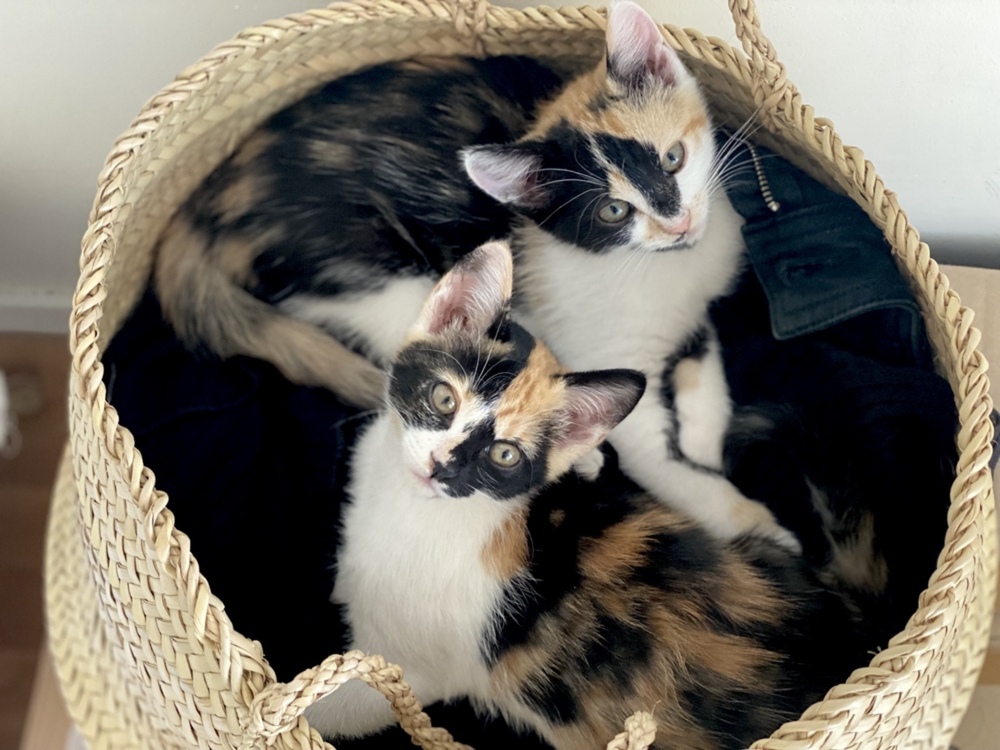
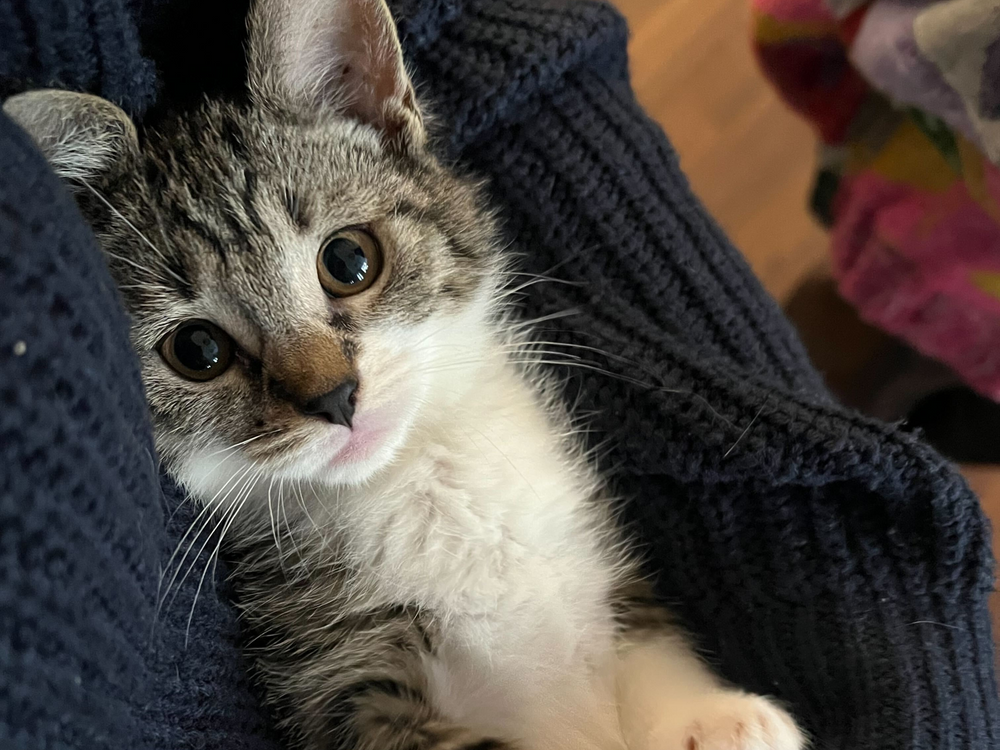
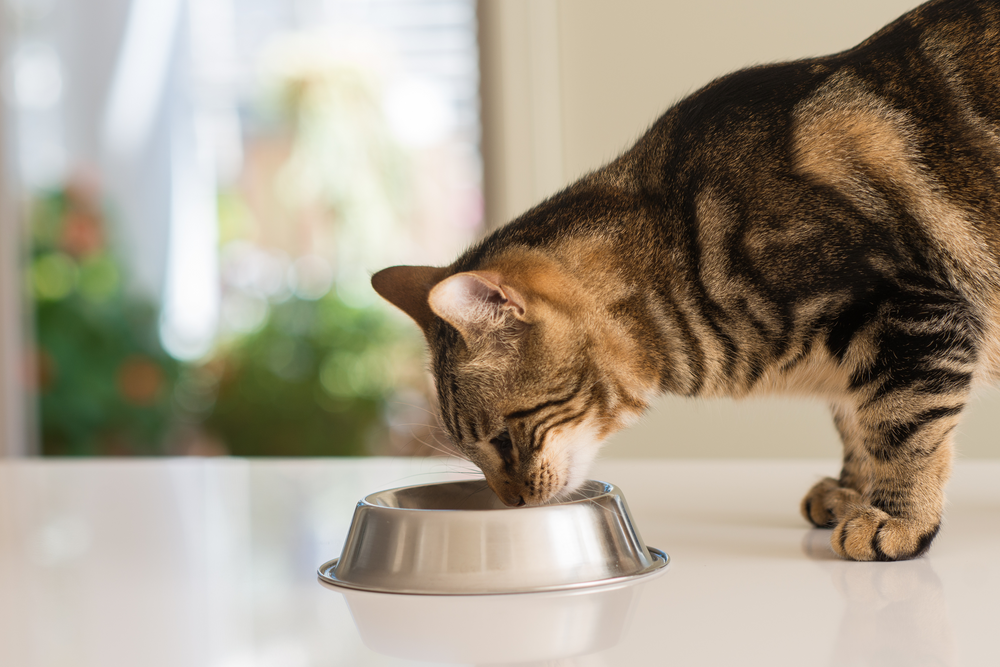
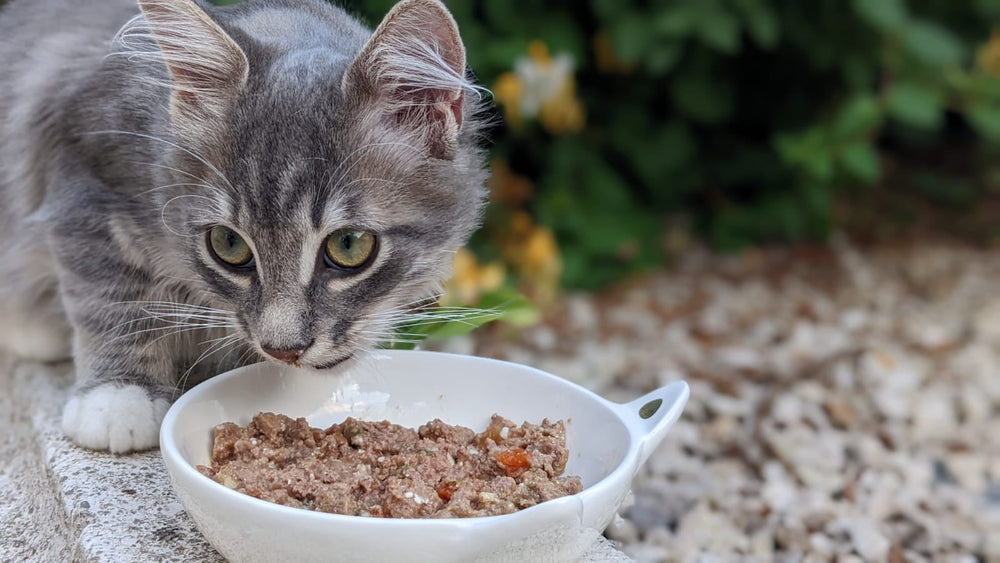
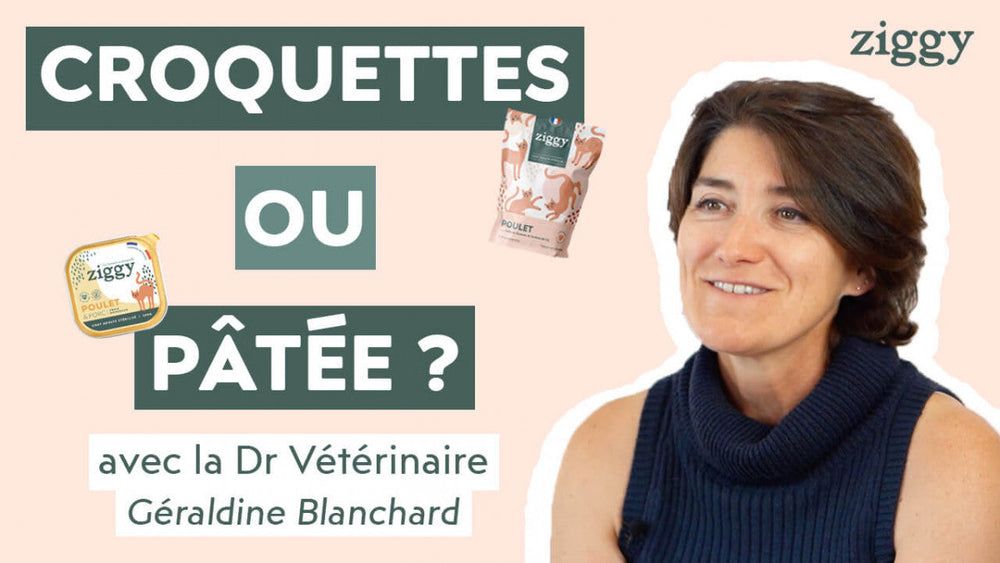
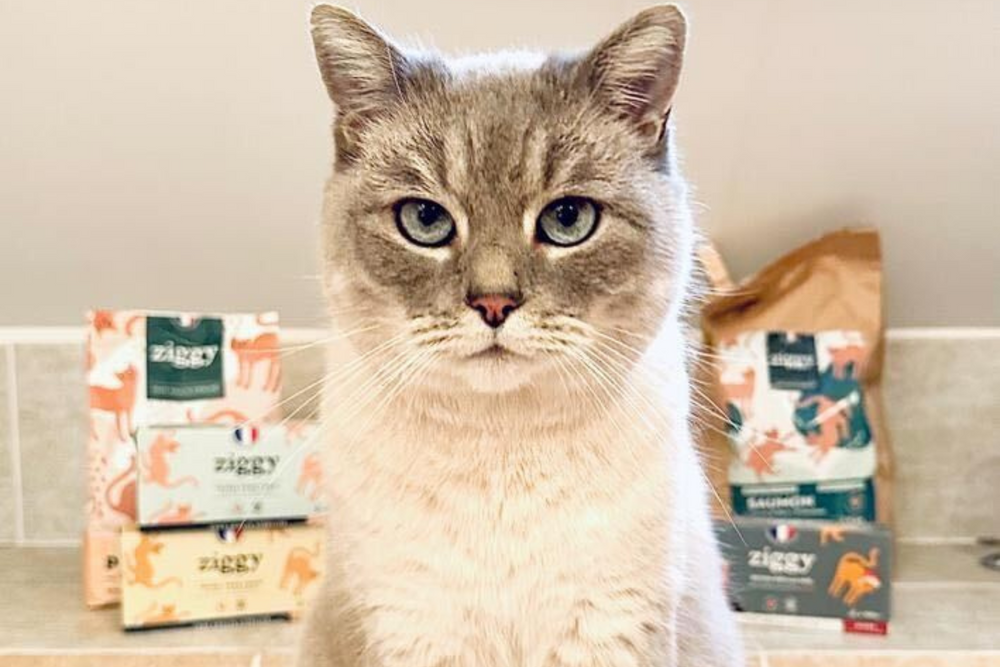


J’aimerais alimenter mon chat en réelle adéquation avec ces besoins
Leave a comment